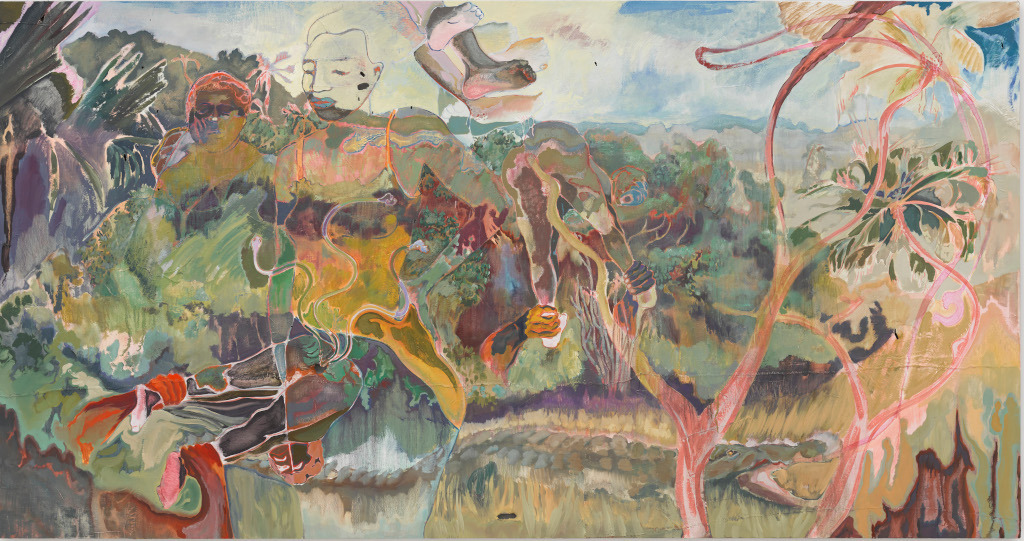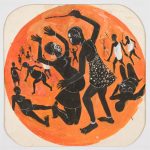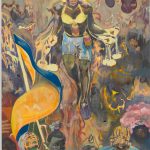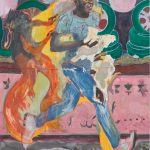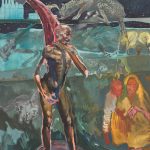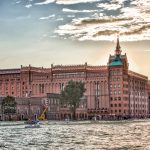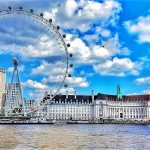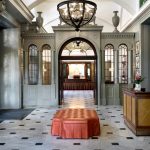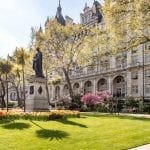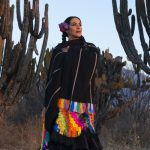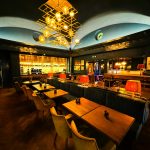Mark Bibby Jackson attends the press preview of Michael Armitage: Paradise Edict at the Royal Academy of Arts, and discovers a rich and multi-layered gem.
Although it might not quite get the same public attention as the exhibitions by Tracey Emin and David Hockney with which it shares the exhibition halls of the Royal Academy, Michael Armitage’s Paradise Edict is every bit as impressive and thought provoking.
Set over a period of seven years Armitage’s work explores the current political and social environment in Kenya laden with classical illusions in a series of 15 paintings that have echoes of Titian, de Goya and Gaugin. The paintings represent a multi-layered narrative of society, religious ideology and social norms in East Africa.
Armitage has created them on a lubugo bark cloth, which is traditionally made by the Baganda people of Uganda from a Mutuba tree and used for ceremonies – literally it means “funeral cloth”. This provides a coarse, uneven structure, with occasional holes, that invites the viewer to take a closer inspections of the paintings’ rough texture.
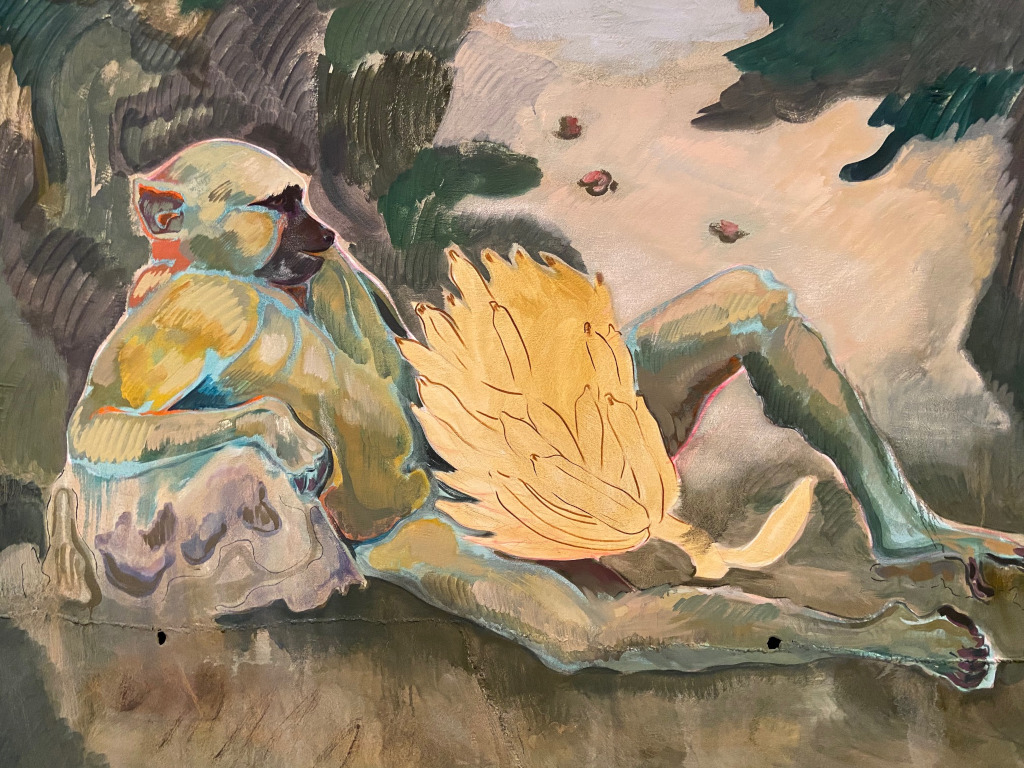

The images themselves ae equally layered. The deeper you delve into the exhibition the more complex – and more challenging – it becomes, much like the texture of the paintings themselves.
Kenyan General Election
Paradise Edict starts with a series of paintings covering the 2017 Kenyan general election. In these Armitage explores the link between religious rhetoric and politics, through a close observation of human expressions and gestures.
During the campaign Armitage joined a local TV crew filming an opposition party rally in Nairobi. This features in his painting The Fourth Estate (2017) where people are sitting on trees keenly listening to each and every word, spoken by the politicians.
Mwili, Akili na Roho’ [Body, Mind and Spirit)
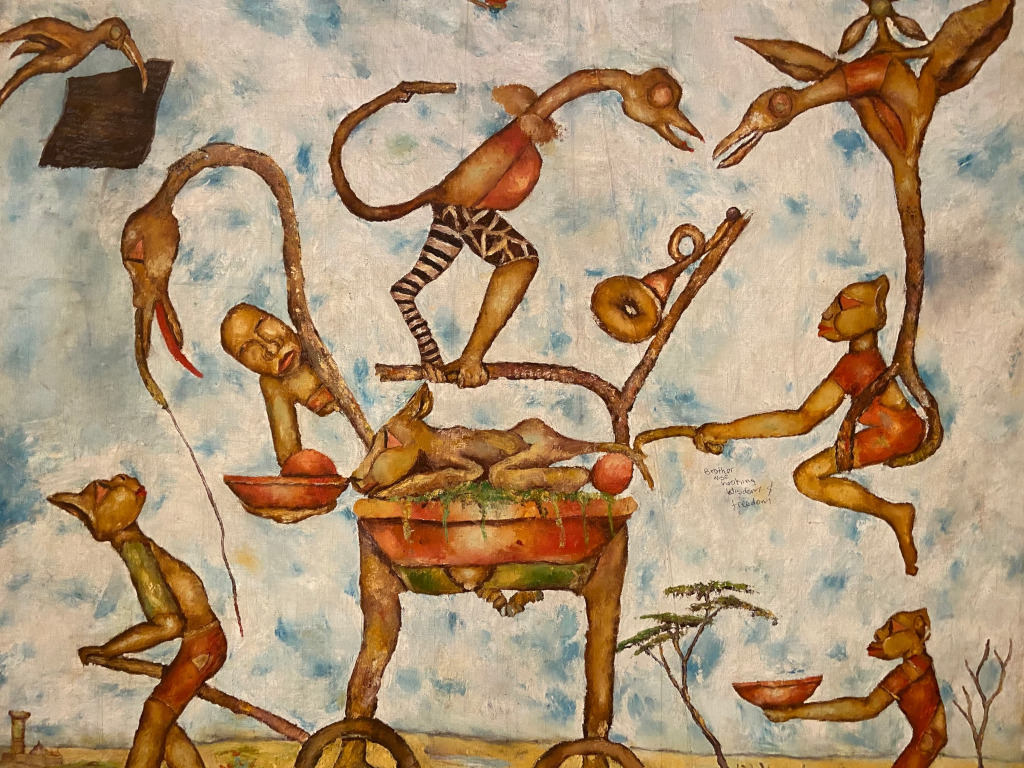

The second room features 35 pieces chosen by Armitage created by other East African artists – Asaph Ng’ethe Macua, Elimo Njau, Jak Katarikawe, Theresa Musoke, Sane Wadu and Meek Gichugu – spanning a period from the 1960s to the 90s. Armitage also helped found the Nairobi Contemporary Art Institute (NCAI) in 2020.
The artists have been chosen both for the role they have played in shaping figurative painting in Kenya, as well as their influence on Armitage himself.
Meek Gichugu’s No Erotic They Say, a wonderfully surreal entwining of a female form and a zebra, is one piece that deeply influenced young Armitage. “It troubled me in a way that I kept wanting to come back and see it,” the artist explains.
Paradise Edict
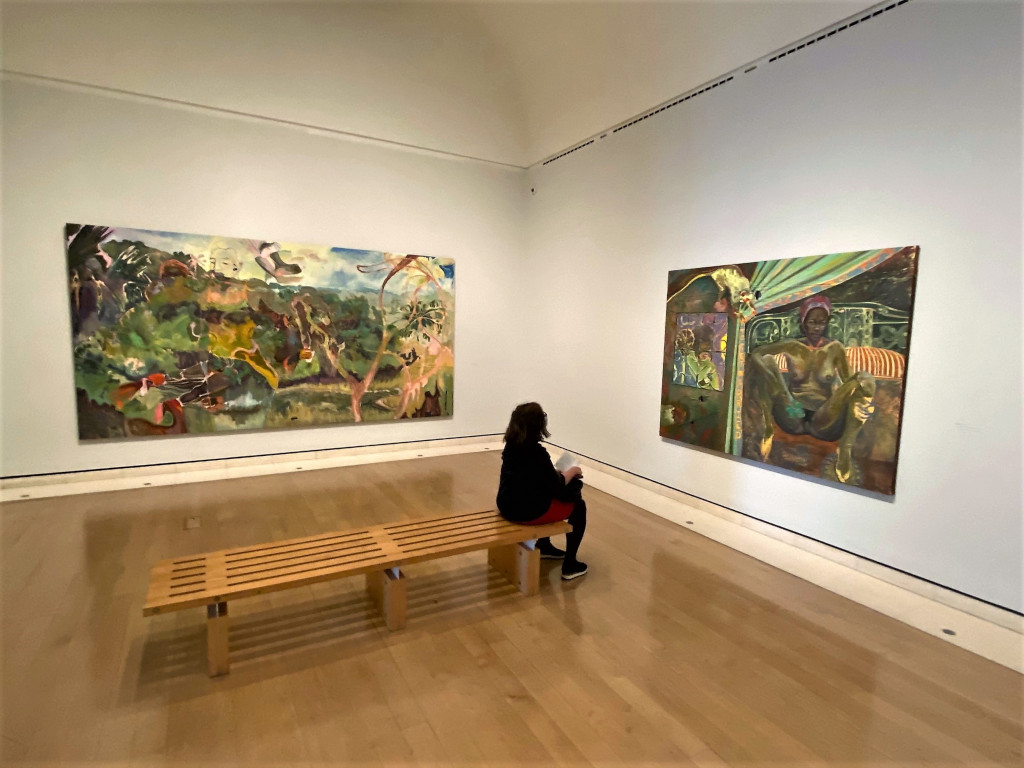

The influence of these pieces is all too clear in the final room of the exhibition – Paradise Edict, which consists of large pieces that challenge a western stereotype of exotic Africa. Paradise Edict (2019) itself paints a vast East African landscape as could be found in a tourism brochure. Yet the landscape is overlaid with scenes of violence, as is the case in the real Kiwayu island situated in Kenya close to the Somali border which is the inspiration for this piece.
This is what is so striking, and disconcerting, about Armitage’s work. The multi-layered texture of the paintings created by the lubugo bark cloth hints at an underlying tension.
Nowhere is this more evident than Antigone (2018), an extremely powerful piece that evokes the pressure placed upon women to marry. Armitage references the Greek tragic hero who defies the edict made by her uncle Creon despite her certain death. In Armitage’s Antigone, the certainty of the modern day young East African woman is equally defiant. As the exhibition notes state, “Poised in an uncompromisingly frontal pose, she holds the viewer’s gaze.”
Michael Armitage
Armitage was born in Kenya in 1984, and works between Nairobi and London. In 2020 he won the Ruth Baumgarte Award for figurative artists.
Paradise Edict : The Essentials
Organised by Haus der Kunst, Munich, in collaboration with the Royal Academy of Arts, curated by Anna Schneider and Dr Anna Ferrari.
Runs from 22 May to 19 September, 2021. Open 10am to 6pm (last admission 5.30pm), closed Mondays. Advance booking is essential.
Tickets are from £13 (concessions available, under 16s and Friends of the RA go free). They are available from royalacademy.org.uk.
Main image: Michael Armitage, The Paradise Edict, 2019. The Joyner/Giuffrida Collection © Michael Armitage. Photo: © White Cube (Theo Christelis).
Background image: Elimo Njau, Dream Landscape, 1968. Weltkulturen Museum, Frankfurt am Main © Elimo Njau. Photo: Maria Obermaier.
